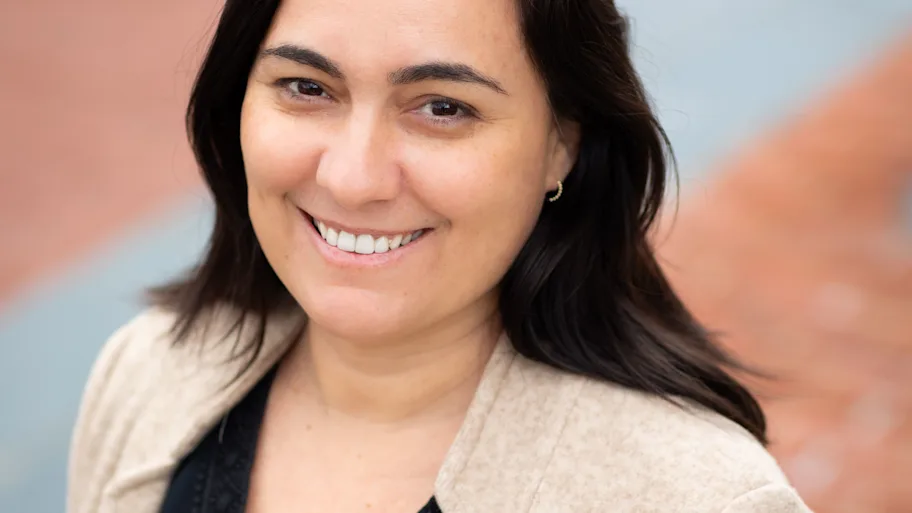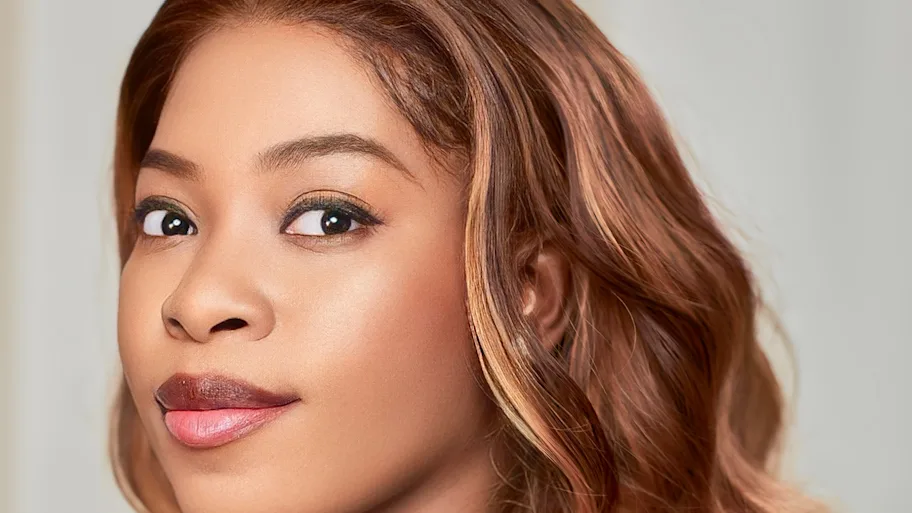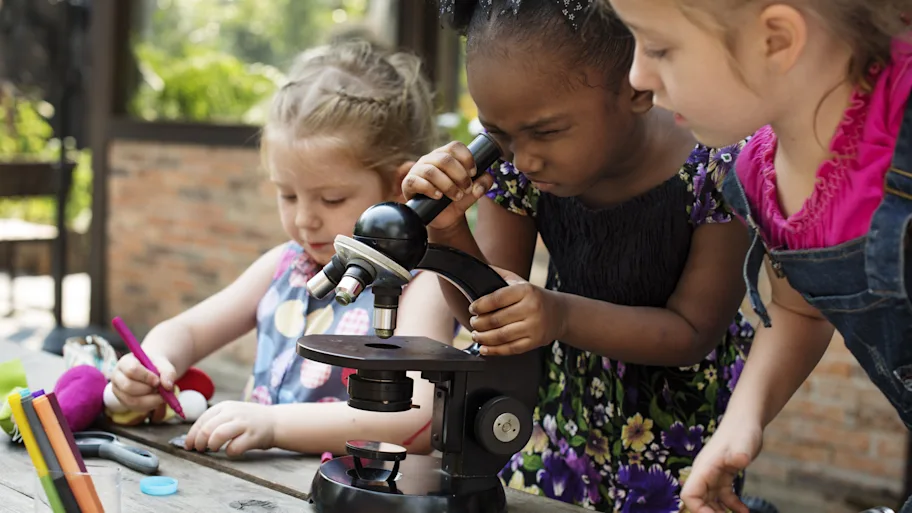
- Science News
- Frontiers news
- Olusola Ololade - The lifeline of the future: The role of women scientists in water resource management
Olusola Ololade - The lifeline of the future: The role of women scientists in water resource management
Author: Sara Baaring
Dr Olusola (Shola) Oluwayemisi Ololade currently holds the position of associate professor and director for the Centre for Environmental Management at the University of the Free State in Bloemfontein, South Africa. She is a member of the International Society for Development and Sustainability and the Organisation of Women in Science in Developing Countries (OWSD). She acts as advisor for young scholars working in the realm of Sustainable Development.
Her research focuses on corporate environmental management and sustainability; water, pollution, and rehabilitation; biodiversity and conservation management; and tools and approaches to sustainable water resource management.
This month, we are celebrating International Women’s Day and World Water Day. I am tremendously lucky to have been able to speak to Dr Ololade. She led me through her journey in water resource management in the African context, calling attention to the need for increased educational measures on water. We explore topics like inequalities in access to water, water reuse, groundwater management, and adaptation to water extremes.

You have extensive experience in climate change adaptation and resilience. I'd love to hear a little about the early stages of your career and how you found your way into the environmental sustainability landscape.
“I’m originally from Nigeria. I came [to South Africa] because my father was working here. I did my undergraduate in geology, which was very male dominated. I was interested in the human aspect and was lucky to be introduced to environmental geology by my supervisor at the time.
“A new world opened for me, and I began understanding how the environment was being impacted by human activities. I worked with the United Nations Millennium Development Goals (MDGs), the precursor to the Sustainable Development Goals (SDGs). I went on to study environmental science at the University of Witwatersrand and focused on research covering river systems and dams, which enhanced my interest in water resource management.
“When I was completing my PhD, there was the focus of the MDGs, which was a hot topic in terms of poverty and climate change. During this time, I realized water resources would be crucial going forward and climate change would impact the quantity and availability of these resources.
“After my PhD, I was invited to do a replacement for a lecturer at the Tshwane University of Technology and I fell in love with academia. I moved from being a consultant to focusing on academic research full-time because I had more freedom to try out new ideas and to train students. Seeing my students acquiring skills and going out [in the world] gives me satisfaction.”
Did you feel that your early career experiences were impacted by your gender? If yes, how so?
“Yes, all my supervisors were male. I never had a female to mentor me. Also, being a woman, you get to a stage where you think about marriage and children, and I found that there are big differences in developing your career. A woman has to balance the family life and career. In the African context, there is a bit of prejudice against women in terms of focusing on the home that you must fight against.
“My parents were also academics. My father was a professor, and my mother was the head of a primary school. I was very fortunate in that both my parents believed in the importance of education. They invested in the education of my siblings as well as my own.
“I remember when I was getting married, my PhD supervisor, who is a white male, asked me whether my husband supported my career. I said ‘yes.’ He has encouraged me to aspire to be who I want, and he holds down the fort when I’m out traveling. My mother has also played a crucial role in the caretaking of my children.
“It has been challenging, especially in the early stages, but without the support of my family, I wouldn’t be where I am today. Being a woman in the workplace, there was some level of understanding that you have other priorities as well. Colleagues stepped in when there was an emergency. I owe where I am today to many people."
You now coordinate the environmental sustainability research group at the University of the Free State. You are also a member of a mentoring group for emerging scholars, particularly supporting black female scholars. These initiatives are aimed towards overcoming gender obstacles and finding solutions that lead to changing societal views on women in science. What would you like to celebrate, and which successes would you like to showcase in relation to these initiatives?
“Being recognized by male colleagues as someone who can contribute is important, especially in a field that is dominated by male leaders. When I get invited as a contributor to a project, I find myself being the only female leading the project, and in this way, I feel I’m on equal ground in my leadership capacity. This is definitely a success.
“As a PI, I feel very successful in that I’ve supervised dozens of students, 80% of whom are women. I feel I create a supportive environment as a role model, encouraging and positively influencing emerging female scholars, who otherwise would have said ‘I don’t think I’m capable of doing this.’ But because they see me doing it, they feel they can do it too.
“I understand the family dynamics that are at play, and I understand my students better because I’ve gone through it, so I encourage women to pursue this route, while also taking their family aspirations into consideration.“
Which projects are you currently working on that you would like to highlight as important in relation to the UN Sustainable Development Goals (Clean Water & Sanitation, Life Below Water, Climate Action)?
“I’m working on three projects right now. One is about the efficiency of the pelargonium species (endemic to South Africa) as a vegetation buffer for the removal of pollutants from agricultural runoffs. We are looking at a low-cost method to remedy agricultural pollution. We would like to plant the pelargonium close to farmlands, so when it rains, they’ll be able to pick up some of the excess nutrients from inorganic fertilizers. This prevents nitrification of water resources such as rivers and streams.
“Another project I’m working on is in Nigeria, where we are developing an enhanced motricity adaptive capacity framework for water management, focusing on three major cities impacted by drought: Lagos, Kano, and Port Harcourt. Through interviews, water quality assessments, and evaluating public health concerns, we hope to give people access to good quality water.
“Lastly, I’m working on assessing the potential of conservation agriculture in mitigating greenhouse gas emissions from maize production in Malawi. It’s what everybody eats. What happens is that climate change is caused through this agricultural production (19 to 25% of all greenhouse gas emissions comes from agricultural production) and climate change eventually impacts water resources, so it’s important that we target this sector.”

You also work with the water-energy-food nexus. Can you tell me a little more about how the connection between these three aspects impacts climate policy in South Africa?
“I found that if you really want to manage water resources effectively, you need to look at the sectors where water is being used. Agriculture consumes a lot of water; energy production requires water as well. Climate change affects these three sectors (water-energy-food), and if you take South Africa as a case scenario, we can see that energy production is mainly from coal (97%). Coal mining is linked to a lot of water resource complications. For example, cooling stations consume a lot of good quality water. Our freshwater resources, including groundwater, are contaminated. Additionally, the mines are located in areas where we have good quality soil for agriculture, which is also being damaged. The place where we get our energy resource from damages our water and our soil. We are compromising our food security and water security through the energy sources we have right now, while contributing to climate change.
“The National Assembly approved a water bill in 2023, but the implementation of the policy is delayed due to the ongoing energy crisis. Being able to move away from coal is difficult because many people are dependent on jobs tied to coal mining. We need to move toward more renewable energies, for example, from waste. However, removal of greenhouse gas emissions is not a top priority right now. Decentralizing energy consumption, stabilizing energy, and raising awareness around the trade-offs and understanding the inherent nature of how energy operates in our country are all ways in which we can progress climate policy.”
International Women's Day is 8 March 2023. What do you envision for the future of women scientists in South Africa by 2030?
“I want to see more support for women working in STEM. We need to support one another. In South Africa, more women need to progress further, professionally and academically, and be a role model to young girls. I believe in engaging in scholarly investigations done by women who are doing research that is innovative and of good quality. I believe we shouldn’t limit ourselves because we have a lot of roles to play, we can excel in all of them.”
World Water Day is fast approaching. Planetary boundaries related to land-system, freshwater change, and ocean acidification are at risk. What do you envision will need to change about water resource management if we are to protect the Earth's stability and resilience for future generations?
“We humans are the ones who are impacting our water resources the most. We cannot survive without water. Until we understand that water is gold, until we give water that role and importance, we cannot manage our water resources well.
“The moment we realize that water is life, and that water is needed for most of our economic activities, is when we can begin to limit the negative impact we have by making sure we use water efficiently and educating our children about the importance of this resource.
“I always ask my students, ‘How many of you see a leaking pipe and you just look away? How many of you think you need to report it to the right authorities, who take immediate action and upgrade the infrastructure?’ The solution lies in the hands of each and every one of us.
“In terms of social impact assessment, the challenge of balancing economic development and water resource sustainability lies in identifying the overlap. Stakeholders are so important. They use the resources. Until there’s a buy-in, no solution will be implemented successfully.
“If you don’t understand the solution or how to use it, there’s no way you will know how implement it. You need to carry the community along with you. When they are part of the initiative from the beginning, it will be easier to implement the solution.
“Lastly, to emerging female scholars in science, I’d just like to say: we all need someone to hold our hand when we need to grow, we cannot do it alone. Look for someone else when you are feeling challenged, there is always someone there to guide you.”
Frontiers is a signatory of the United Nations Publishers COMPACT. This interview has been published in support of the nine planetary boundaries.






